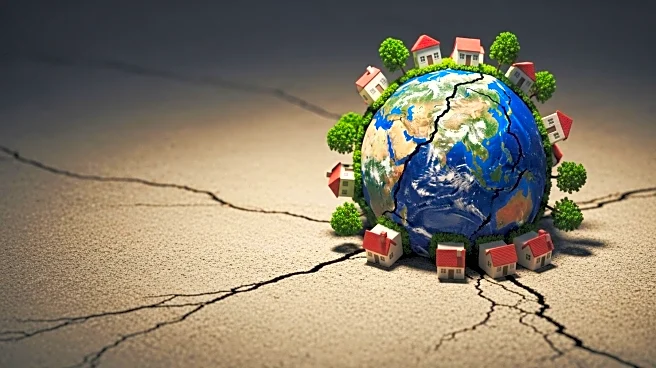What's Happening?
On Saturday, Ethiopia experienced a significant seismic event when an earthquake of magnitude 5.7 struck the region. According to the German Research Center for Geosciences (GFZ), the earthquake occurred at a depth of 10 kilometers (6.2 miles). The tremor has raised concerns about potential damage and the safety of local communities, although detailed reports on the impact are yet to be released. This event adds to the series of seismic activities observed globally, highlighting the need for preparedness in earthquake-prone areas.
Why It's Important?
The occurrence of a magnitude 5.7 earthquake in Ethiopia is significant due to the potential impact on infrastructure and communities in the affected area. Earthquakes of this magnitude can cause considerable damage, especially in regions where buildings may not be designed to withstand such forces. The event underscores the importance of seismic monitoring and the implementation of safety measures to protect lives and property. Additionally, it may prompt discussions on improving building codes and emergency response strategies in Ethiopia and similar regions.
What's Next?
Following the earthquake, local authorities and international organizations are likely to assess the damage and provide necessary aid to affected communities. There may be an increase in efforts to enhance earthquake preparedness and resilience in Ethiopia, including public awareness campaigns and infrastructure improvements. The event could also lead to further research into the region's seismic activity, contributing to better predictive models and risk assessments.
Beyond the Headlines
The earthquake in Ethiopia may have broader implications for regional stability and development. It could affect economic activities, particularly in sectors reliant on infrastructure such as transportation and trade. Additionally, the event may influence international aid and investment in disaster risk reduction initiatives, highlighting the interconnectedness of global efforts to address natural disasters.









